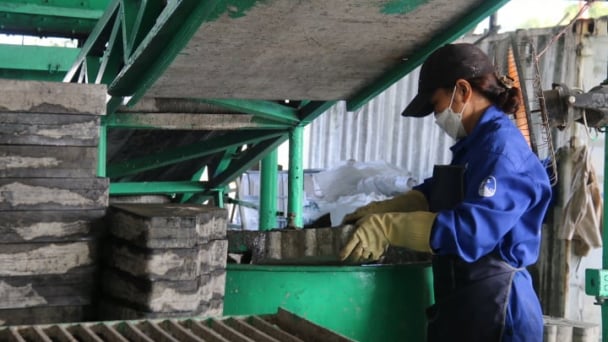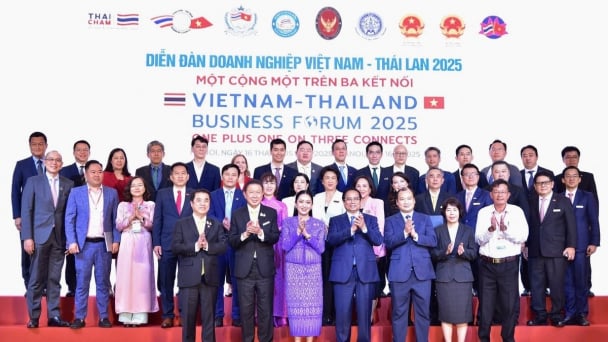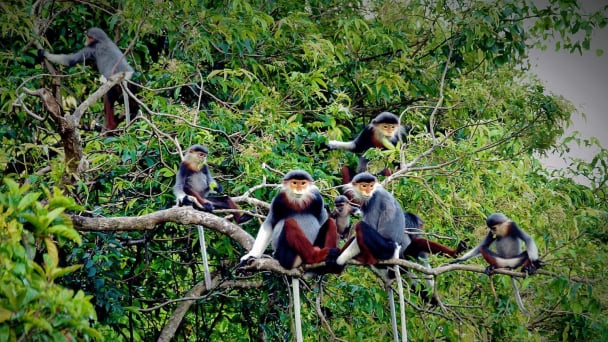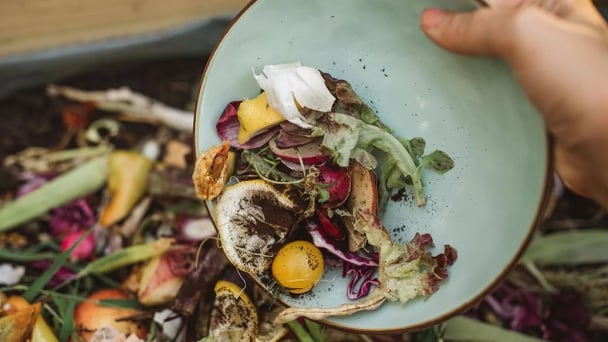May 18, 2025 | 18:36 GMT +7
May 18, 2025 | 18:36 GMT +7
Hotline: 0913.378.918
May 18, 2025 | 18:36 GMT +7
Hotline: 0913.378.918
1st Ministerial Roundtable, 26 April 2021
President of the 26th Conference of the Parties of the United Nations Framework Convention on Climate Change (COP26)!
Ministers!
Ladies and gentlemen!
First, I would like to express my congratulations and support for the UK - the host country of the COP26, for the brilliant initiative on Ministerial Policy Dialogues on Transition to Sustainable Agriculture Conference of Agriculture, within the framework of the Conference of the Parties of the United Nations Framework Convention on Climate Change (UNFCCC).
Ladies and gentlemen!
Viet Nam, together with other parties of the UNFCCC, submitted the updated "Nationally Determined Contribution" (NDC) in September 2020, expressing the commitment to join the global efforts to reduce greenhouse gas emissions (GHG). Accordingly, Viet Nam has committed to reduce GHG emissions by 9% by 2030 compared to the business as usual scenario (BAU). The our GHG emission reduction target can even reach upto 27% if Viet Nam receives more financial, technology, and capacity building supports from international partners.
According to the climate change scenario prepared by the technical agencies of Viet Nam Government, by the end of the 21century, the sea level rise can submerges about 39% of the Mekong Delta area - the largest rice bowl of the country- and could reduce 40.5% of rice production of the region.
Although we all have been suffered from the Global COVID-19 pandemic impacts, the agriculture sector of Viet Nam has shown its cristical role in stablizing the country economic growth, ensuring food security and social stability while engaging the global efforts to fight against climate change. Agriculture is not only adversely affected by climate change but also is a significant source of greenhouse gas emissions, which accounts for 31.6% of the country's total greenhouse gas emissions.
Ladies and gentlemen!
Viet Nam’s agriculture has accelerated the application of science and technology, optimized the use of land and inputs for production in order to improve quality and added value, to meet the increasing demands both in the domestic and export markets. In addition, we has also supported R&D with integrated and multi-disciplinary approach, covering various sectors such as cultivation and husbandry, cultivation and aquaculture, agroforestry, ecotourism, etc.
In particular, with the support of the Climate Change and Food Security Program in Southeast Asia (CCAFS), USAID, Australia and many other partners, a number of studies have been conducted such as:
- Developing and transferring new varieties of plants with high yield and quality, adapting to new farming conditions and regimes (resistant to salinity, drought, alum, inundation, drought, disease, etc.);
- Improve the resilience of the agricultural system, promote the adoption of climate-smart agricultural practices (CSA) to ensure crop productivity and efficiency while contributing to reduce greenhouse gas emissions;
- Evaluate the feasibility of reducing greenhouse gas emissions of alternative solutions in the agricultural sector.
Ladies and gentlemen!
To cope with climate change and develop a sustainable food system, in the coming time, Viet Nam’s government will continue to promote agricultural restructuring towards sustainable development, improving quality, added value and competitiveness; protecting the environment and ecosystem; improving income for people in rural areas; ensuring food security and nutrition; promoting the development of clean and organic agriculture, associated with the development of processing industries, climate change adaptation and link to the global agricultural value chains.
In addition, we are proactively incorporating gender equality, strengthening and improving the role of agricultural production households, enhancing the role of agricultural cooperatives to adapt with specific conditions, promoting the participation of the private sector, promoting the application of new science and technology, and piloting and upscaling the public-private partnership models.
This Sustainable Agricultural Transition Dialogue plays an important role in promoting cooperation among member countries and within the international community for sustainable agricultural development and food security. We kindly request for greater attention and cooperation from international partners on:
- Cooperation and support in conducting research, forecasting and providing early warning of natural disasters and weather extremes;
- Strongly promote experience sharing, transfer of advanced science and technology in production and processing in order to increase productivity and product quality; strengthen cooperation in research on food security and nutrition security while reducing food loss and waste;
- Financial support for developing countries, promote trade and investment. Promote technological innovations in agricultural production to reduce greenhouse gas emissions from production and processing activities; (Bỏ “is needed” ở cuối đi)
- Promote coordination and information sharing on natural and water resources sustainable management, including management of transboundary water and marine resources.
- Actively cooperate in the implementation of the Paris Agreement on climate change, especially in building a system for natural disaster prevention, improving sustainability and resilience after natural disasters, and focus on natural community-based management and sustainable rural development.
Sustainable agriculture transformation will bring sustainability for resource use, food systems and ecosystems, contributing to the achievement of the Sustainable Development Goals by 2030.
Finally, I wish the UK - the COP26 President organize the Policy Dialogues and COP26 successfully.
Thank you for your kind attention!

(VAN) Deputy Minister Nguyen Quoc Tri also expressed his hope that Cuba will soon overcome its current challenges, attain food security, and further expand cooperation with Vietnam.

(VAN) The project contributes to enhancing the resilience of communities vulnerable to the impacts of climate change, with a primary focus on local women.

(VAN) Green materials help save energy and resources. However, after more than 10 years, Vietnam has only developed over 200 green buildings with more than 6 million square meters of floor space.

(VAN) Vietnam - Thailand Business Forum 2025: One plus one on three connects, marking a milestone in the comprehensive strategic partnership between the two nations.

(VAN) The United Nations designated 22 May as the International Day for Biodiversity 2025 with the theme 'Harmony with nature and sustainable development.'
![Multi-channel, multi-directional Vietnamese agricultural markets: [8] A national strategy is needed](https://t.ex-cdn.com/nongnghiepmoitruong.vn/608w/files/phucpm/2025/05/15/1435-thi-truong-nong-san-viet-da-kenh-da-huongbai-8-can-mot-chien-luoc-quoc-gia-084750_728.jpg)
(VAN) The Chairman of Hung Nhon Group shared: ‘Opening up and tapping into new markets is the right and strategic direction for Vietnam's agricultural sector.’

(VAN) Food waste has become a serious issue in modern society, especially in rapidly urbanizing and developing cities like Hanoi.